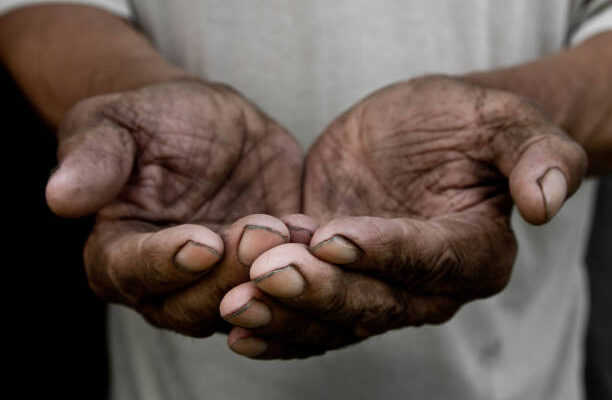By Ejiofor Toochi
Outside Ikeja City Mall (ICM), young men gather, arms outstretched to passers-by begging for alms. They navigate through the crowds, seeking their “daily bread” from one visitor to another.
This location has been strategically chosen due to its high number of daily visitors.
The staggering inflation and rise in the cost of living in Nigeria in 2023, resulted in a substantial number of households being entrapped in the clutches of poverty.
READ ALSO: Challenges of Single Moms
Currently, Nigeria is home to almost 12 percent of the world’s population living in extreme poverty, considering the poverty threshold of 1.90 U.S. dollars a day. The economic hardship is hitting harder and faster, forcing many to find alternative means to survive.
Street begging has become a common sight, with an estimated 3 million beggars scattered across Nigeria, according to the United Nations. Sadly, despite the ban in place, Lagos, the commercial capital of Nigeria, is home to a growing population of street beggars, each with their own individual stories.
Ikeja City Mall for years, has been a location for street beggars. If you’re a regular at the mall, you’ll recognize some of the young men who ask visitors for money. Although there haven’t been many reported cases of robberies, their presence has made visitors uncomfortable. The mall management has taken steps to keep them outside and prevent them from using begging as a way to disguise theft or engage in other crimes.
Speaking to Ikejabird, some of these young men who beg outside the mall shared that the reason they turn to begging is the lack of well-paying job opportunities. However, they made it clear that despite the presence of others engaging in such activities, they personally choose to ask for money rather than resorting to stealing. One said, “I no fit steal, so e better make I ask for help from people wey be say dem fit help me.” He also cited his fears of being locked up.
Another boy, Olamide Mojibola, in agreement, said, “I told myself that rather than stealing someone’s thing, I’d rather beg for money to survive.”
One can however observe the presence of others engaging in menial jobs such as selling water, nylons, or operating POS systems. But most of these young men do not see it as profitable.
An example is Ayomide, who recently joined the increasing population of beggars outside Ikeja City Mall, after facing difficulties in learning a trade due to financial constraints. He claims, “Sometimes, we use to see money that even the people that sell bottled water don’t see.” He estimated the money to be around N3000 to N8000 in a day.
Ayomide added, “Assuming I see like all these kind of company job, that one is going to be better than selling bottle water up and down.”
It is commendable that in spite of the biting economy and prevalence of criminal activities, these boys have opted to distance themselves from such behavior. However, it is imperative for the Lagos State Government to engage in thorough deliberation and implement effective measures to address the issue of street begging and provide jobs.
Failure to do so may result in the persistence and possible escalation of street begging in Lagos State.
READ ALSO: From Microbiology to becoming a documentary photographer: Nigerian lady shares her story








